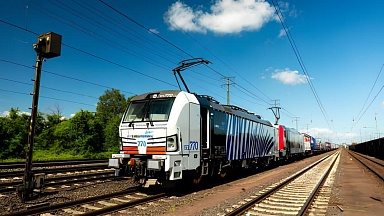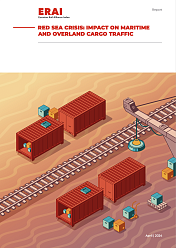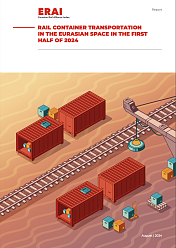What kind of impact has this year’s fee increase had on China Railway Express? What will be the trend next year? Who is behind the rising fee? Chinese railway companies highlighted the impact of this year’s Kazakhstan fee increase through video interviews at the ESRS.
Why are the prices increasing?
Jiang Chongyan, general manager of Air Sea Group, claimed that the increase in the fee was caused by the invisible hands of the market. With the rise of market demand, the rising cost of crossing Kazakh railways will also be further digested by the market. Jet Yang, international affairs liaison officer of the International Train Consulting Service Center of the China Communications and Transportation Association, said that the price increase is actually determined by UTLC.
UTLC is a joint transportation and logistics company formed by Kazakh Railways (KTZ), Russian Railways, and Belarusian Railways. Since the company is headquartered in Moscow, Yang Jie also revealed that the price increase is likely to be an order from Russia. UTLC’s role in the future operation of KTZ was also discussed at the ESRS, but the Kazakh company did not provide a clear answer.
Advantages and disadvantages of the higher fee
Chongyan pointed out that rising costs did pose some challenges to Air Sea Group’s operations. The company is currently helping customers to reduce costs by improving timeliness and increasing the turnover cycle of containers. Although KTZ’s fee increase is a certainty, Seitzhanov said at the event that KTZ opposed the increase in transit fees and that next year’s fees will remain stable.
Max Container China representative Lei Ming said that the increase in the cost of Kazakhstan has brought great challenges to the route passing through Alashankou and Korgos. Therefore, the price of the route through Erenhot becomes more competitive in comparison.
What are the possible solutions?
When asked about the rising fee, different Chinese companies have given different solutions. Andy Luo, general manager of Dimerco Xi’an, said that Kazakhstan’s rising transit fees have increased its overall transportation costs. If this part of the cost continues unabated in the future, and the timeliness of transportation cannot be optimised and improved, it is likely to lead to goods being moved on the road.
In the coming year, there will be new actions in Central Asia. The construction of the China-Kyrgyzstan-Uzbekistan Railway is in sight, and the capacity of the Middle Corridor passing through the two seas is also constantly being upgraded. The dawn of the Trans-Afghan Railway is approaching, and the railway extending westward from Kazakhstan is full of opportunities as well. In addition to the changes in KTZ’s fees, the future story leaves more room for imagination.





